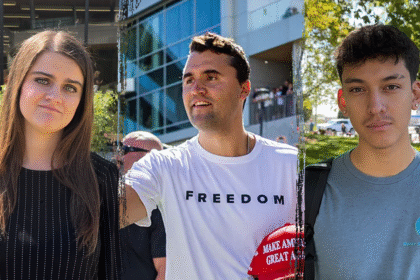U.S. Envoys Head to Egypt in Bid to Resolve Gaza Conflict
In a significant diplomatic move, Special Presidential Envoy Steve Witkoff and Jared Kushner are traveling to Egypt to engage in high-stakes negotiations aimed at ending the ongoing war in Gaza. Senior administration officials have indicated that the envoys will remain in Egypt until a resolution is achieved, underscoring the urgency of the situation.
Context of the Conflict
The conflict in Gaza has escalated dramatically in recent months, leading to widespread devastation and a humanitarian crisis. The ongoing hostilities have resulted in significant loss of life and displacement, drawing international attention and calls for a ceasefire. The situation has become increasingly complex, with various factions involved and a multitude of geopolitical interests at play.
Optimism Amidst Tension
As the envoys prepared for their journey, President Trump convened a meeting with top national security officials. During this meeting, Witkoff and Kushner provided updates on the situation, fostering a sense of cautious optimism among the leaders. According to Axios, insiders believe there is a “real chance of reaching a deal this week” that could facilitate the return of Israeli hostages currently held by Hamas.
The Hostage Situation
The plight of the hostages remains a critical issue in the negotiations. Reports indicate that approximately 20 of the 48 hostages believed to be in Hamas’s custody are still alive. This grim reality adds urgency to the discussions, as families and communities await news of their loved ones. The emotional toll on the families of the hostages cannot be overstated, as they grapple with uncertainty and fear.
Historical Precedents
The current situation echoes past conflicts in the region, where negotiations have often been fraught with challenges. Historical attempts to broker peace in the Israeli-Palestinian conflict have frequently stumbled over issues of territory, security, and mutual recognition. The Oslo Accords of the 1990s, for instance, represented a significant moment of hope but ultimately fell short of achieving lasting peace.
U.S. Strategy and Regional Dynamics
The U.S. has historically played a pivotal role in Middle Eastern diplomacy, often acting as a mediator between conflicting parties. The involvement of Witkoff and Kushner, both of whom have deep ties to the region, reflects a strategic approach aimed at leveraging relationships to facilitate dialogue. A senior U.S. official remarked, “Bibi did an excellent job. The military pressure was critical to make Hamas more pragmatic. But now Bibi must understand that it’s time for a deal,” highlighting the delicate balance of military and diplomatic strategies.
The Role of Egypt
Egypt has long been a key player in Middle Eastern politics, often serving as a mediator in conflicts involving Israel and Hamas. The country’s geographical proximity and historical ties to both parties position it uniquely to facilitate negotiations. The Egyptian government has expressed its willingness to assist in brokering a ceasefire, but the success of these efforts will depend on the willingness of both sides to compromise.
The Broader Implications
The outcome of these negotiations could have far-reaching implications not only for Israel and Palestine but also for regional stability. A successful resolution could pave the way for renewed dialogue and cooperation, while failure could exacerbate tensions and lead to further violence. The international community is closely monitoring the situation, with many nations advocating for a peaceful resolution to the conflict.
Conclusion
As Witkoff and Kushner embark on their mission to Egypt, the stakes are higher than ever. The potential for a breakthrough in negotiations offers a glimmer of hope amidst the turmoil. However, the complexities of the situation demand careful navigation and a commitment to dialogue from all parties involved. The world watches closely, hoping for a resolution that prioritizes peace and the well-being of those affected by the conflict.











